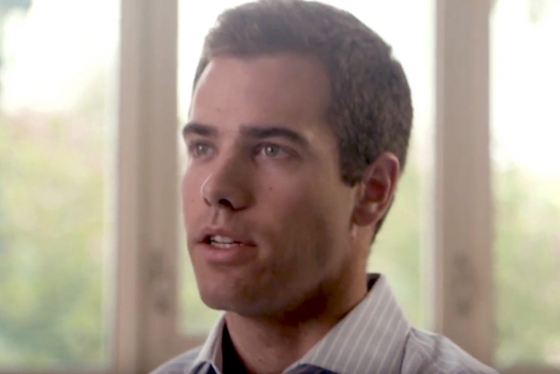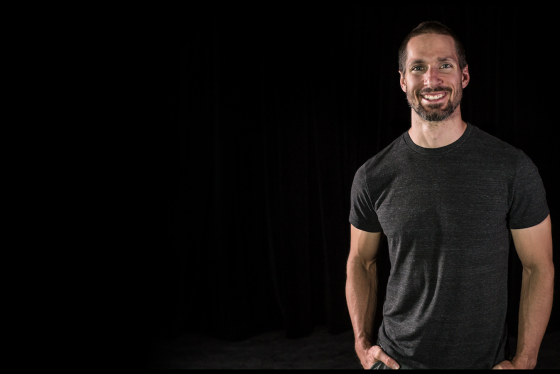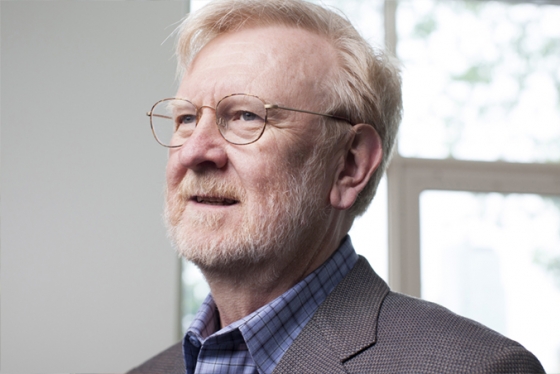Faculty of Applied Science & Engineering | School of Graduate Studies
Bill Buxton
Master of Science (MSc) 1978 Hon. Doctor of Science (Hon. DSc) 2013
Bill Buxton at any moment can be quoting Oscar Wilde, or T.S. Eliot, or Jimmy Hendrix, and the next moment talking about black flies on the Bruce Trail or building birch bark canoes. Buxton's brilliance and his eclectic career and life were honed at the University of Toronto, and today he is a principal researcher at Microsoft Research.
Buxton, who was back at U of T in June 2013 to receive an honorary degree of Doctor of Science, says Jimmy Hendrix (the late electrical guitarist) asked the most important philosophical question in the last 100 years: “Are you experienced?”
It was a question Buxton took to heart during his time at U of T and one that he believes all students should keep in mind when they come here. When people narrow in on one particular academic strength to the exclusion of others they can become “ignorant and inexperienced in everything else,” he says. U of T excels at providing a broad range of experiences that students can take advantage of and use for the rest of their lives.
Buxton says he had no intention of going to U of T or coming back to Canada while working as a musician in the Netherlands in the 1970s but after seeing a computer art display in London he started corresponding with its creator — Leslie Mezei, — who had also created the Dynamic Graphics Project at U of T. He convinced Buxton to come as an artist-in-residence in the department and become a member of the project.
In 1984, they worked on multi-touch screens that the public really only began using almost 25 years later on smart phones. “I didn’t care about phones, I was trying to build a drum” by using a digital synthesizer, he says.
Buxton says “great innovations often come as the unexpected consequences of somebody just following their curiosity and their passion, with a good team, good resources and good encouragement…that is the lesson you take away from” U of T.
The interaction he experienced “turns out to have been hugely influential in shaping my career,” he says. His career has not been a career in technology because “what I really studied the most and really focused on has been the technology of the human being, and our culture and society, not the digital society. That was instilled in me by my mentors, who are still my mentors,” mentioning Mezei, Ronald Baecker and K.C. Smith.
One thing he sees in U of T graduates is “their willingness to listen and learn. I’d rather see people who are wrong and learn something from it than people who feel they lose face if they are wrong,” Buxton says.
The respect he has for U of T’s “cross-disciplinary work” is enormous, he says. “A liberal arts degree is still one of the most valuable things in life.”
A lot of his former students are now teaching at U of T and he is always on the lookout “for good people to hire. I want them in my lab.” He also works to help find jobs for grads in other labs despite the major cutbacks in corporate research in the U.S. and Canada. That’s why he started Autodesk in Toronto, “to prove you can have a life in research.”
U of T has an international reputation as a welcoming place for anyone who can prove they want to be here, and have the “discipline, desire and core competence” necessary to succeed. “Any place that would take a musician (like him) is fantastic.” The musician turned “digital giant,” as U of T President David Naylor calls him, has won many awards over the years, including being named of the world’s most influential designers by Business Week.
Published Dec. 9, 2013.





